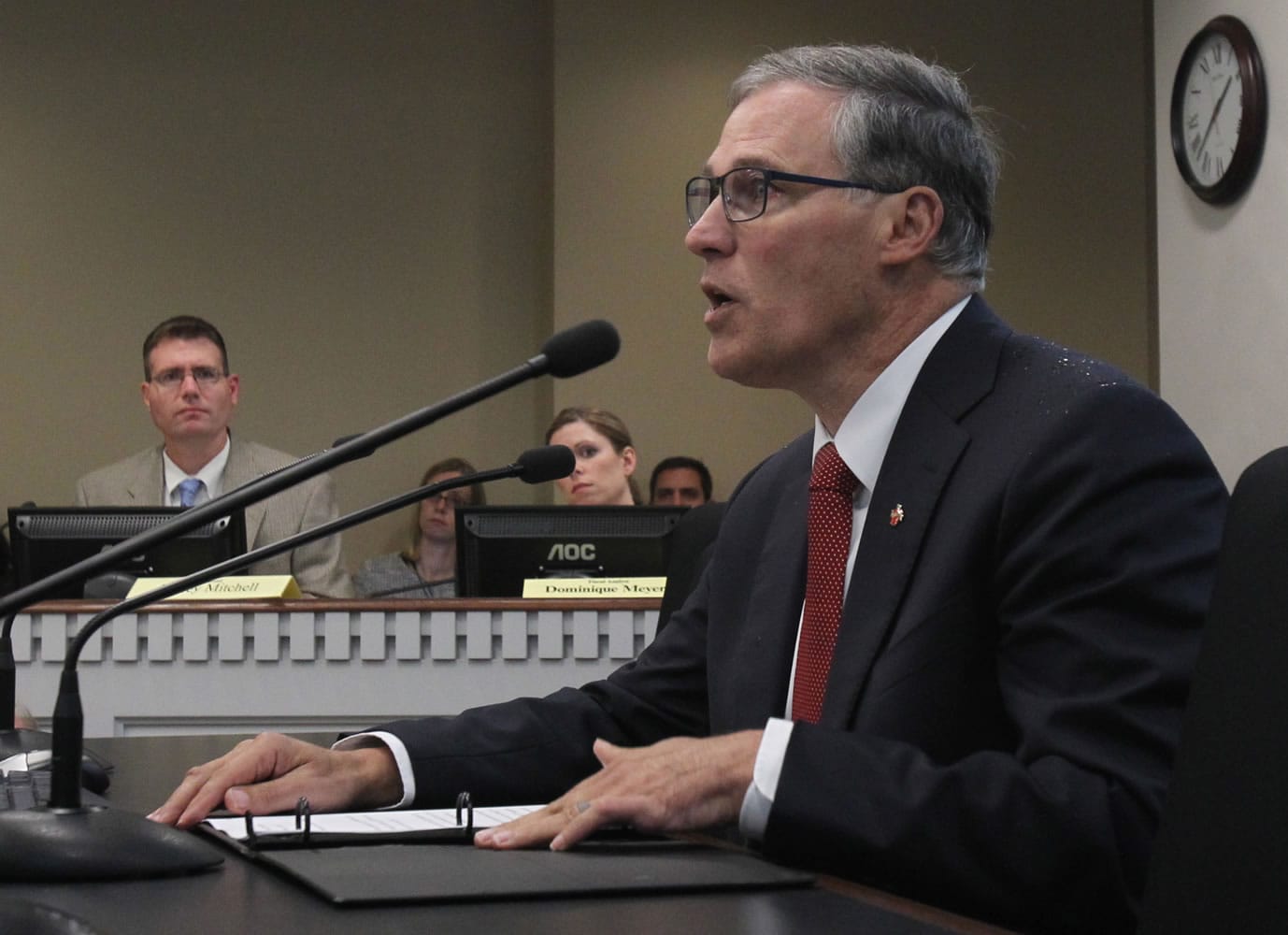OLYMPIA — As lawmakers gathered in Olympia on Thursday to consider a massive new package of incentives for Boeing Co., the company’s past decisions to ship work elsewhere weighed on the debate.
It was a decade ago when a coalition of lawmakers and the governor ushered through a broad package of tax breaks and other benefits for Boeing — all in an effort to keep the company’s 787 manufacturing in the state. In the years that followed, however, wing production was placed in Japan and a new production line was established in South Carolina.
Gov. Jay Inslee told lawmakers that his new proposal — which would extend the tax incentives approved in 2003 — includes protections that require key manufacturing work of the new 777X to remain in Washington.
“We believe this will prevent the consequences of what happened with the second line in the Boeing 787,” said Inslee, who called lawmakers back to Olympia this week for a special session dedicated to the Boeing proposals. Inslee also has called for a $10 billion transportation revenue package to pass as part of the overall plan, but Senate leadership has indicated that it wants to take that up at a later time.
Boeing has yet to publicly comment on its request, other than to send a letter to Inslee suggesting that the tax breaks and other legislation were needed in order to secure the 777X. The company’s lobbyists watched testimony at a public hearing on the bill Thursday but didn’t even sign up to testify in favor of the measure.
The extended tax breaks are valued at $9 billion, according to state estimates.
Remy Trupin, executive director of the liberal Washington State Budget & Policy Center, noted the tax breaks that were provided to Boeing in 2003 that “didn’t stop the company from moving production of the 787 to South Carolina.” He said lawmakers have to recognize that giving the tax breaks will reduce valuable revenue needed for other investments, such as fully funding the state’s education system.
“We must ensure that significant state investments in Boeing benefit all Washingtonians,” Trupin said in a statement.
The center also suggested more stringent accountability measures, such as a clawback provision that would allow the state to recover tax revenues if Boeing later backs out of the deal. The group also proposed that the law require the company to maintain its existing facilities, so it doesn’t ship production of other planes elsewhere.
Rep. Reuven Carlyle, a Democrat who is helping shepherd the plan through the Legislature, said there was obvious anxiety and resentment tied to Boeing’s decision to open the new 787 line in South Carolina. In the more recent discussions, he said the company acknowledged that dynamic.
Carlyle said he’s pleased with the strength of the accountability pieces that would prevent a repeat of that 787 shift when it comes to the future of the 777X. But he also said he would have liked to have seen stronger language in the deal to prevent Boeing from moving parts of its non-777X lines to other locations.
“I would have liked to see stronger language,” Carlyle said. “I couldn’t get overall consensus from all the stakeholders.”
Earlier this week, Boeing proposed an eight-year labor agreement with the International Association of Machinists and Aerospace Workers that would guarantee construction of the new 777X in the Puget Sound area. Questions about whether legislative action was actually needed were raised after the Machinists posted a summary of the agreement between the union and Boeing online Wednesday.
A letter of understanding that was included indicated the company’s commitment hinges solely on the union’s vote next week on the eight-year contract, and there was no mention of legislative action as a parallel requirement.
Inslee’s office released a letter Thursday written by a Boeing official that states that “transportation infrastructure improvements” and other measures will ensure Boeing’s lasting competitiveness in the state.



